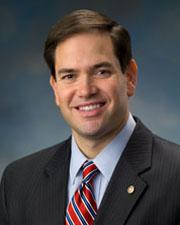0
0
0
Health Savings Act of 2023
12/15/2023, 4:07 PM
Summary of Bill S 1158
Bill 118 s 1158, also known as the Health Savings Act of 2023, is a piece of legislation currently being considered by the US Congress. The main goal of this bill is to expand access to Health Savings Accounts (HSAs) for individuals and families.
One of the key provisions of the bill is to increase the annual contribution limits for HSAs. Currently, individuals can contribute up to $3,600 per year and families can contribute up to $7,200 per year. The Health Savings Act of 2023 would raise these limits to $5,000 for individuals and $10,000 for families.
Additionally, the bill aims to make it easier for individuals to use their HSA funds for a wider range of healthcare expenses. Under the proposed legislation, over-the-counter medications, menstrual care products, and certain fitness and wellness expenses would be eligible for HSA reimbursement. Furthermore, the Health Savings Act of 2023 includes provisions to allow individuals to roll over unused HSA funds from year to year, rather than losing them at the end of the year. This would give individuals more flexibility in managing their healthcare expenses and saving for future medical needs. Overall, the Health Savings Act of 2023 seeks to promote greater access to affordable healthcare options for individuals and families by expanding the use and benefits of Health Savings Accounts. The bill is currently under review in Congress and may undergo further revisions before being voted on.
One of the key provisions of the bill is to increase the annual contribution limits for HSAs. Currently, individuals can contribute up to $3,600 per year and families can contribute up to $7,200 per year. The Health Savings Act of 2023 would raise these limits to $5,000 for individuals and $10,000 for families.
Additionally, the bill aims to make it easier for individuals to use their HSA funds for a wider range of healthcare expenses. Under the proposed legislation, over-the-counter medications, menstrual care products, and certain fitness and wellness expenses would be eligible for HSA reimbursement. Furthermore, the Health Savings Act of 2023 includes provisions to allow individuals to roll over unused HSA funds from year to year, rather than losing them at the end of the year. This would give individuals more flexibility in managing their healthcare expenses and saving for future medical needs. Overall, the Health Savings Act of 2023 seeks to promote greater access to affordable healthcare options for individuals and families by expanding the use and benefits of Health Savings Accounts. The bill is currently under review in Congress and may undergo further revisions before being voted on.
Congressional Summary of S 1158
Health Savings Act of 2023
This bill modifies the requirements for health savings accounts (HSAs) to
- rename high deductible health plans as HSA-qualified health plans;
- allow spouses who have both attained age 55 to make catch-up contributions to the same HSA;
- make Medicare Part A (hospital insurance benefits) beneficiaries eligible to participate in an HSA;
- allow individuals eligible for hospital care or medical services under a program of the Indian Health Service or a tribal organization to participate in an HSA;
- allow members of a health care sharing ministry to participate in an HSA;
- allow individuals who receive primary care services in exchange for a fixed periodic fee or payment, or who receive health care benefits from an on-site medical clinic of an employer, to participate in an HSA;
- include amounts paid for prescription and over-the-counter medicines or drugs as qualified medical expenses for which distributions from an HSA or other tax-preferred savings accounts may be used;
- increase the limits on HSA contributions to match the sum of the annual deductible and out-of-pocket expenses permitted under a high deductible health plan; and
- allow HSA distributions to be used to purchase health insurance coverage.
The bill also (1) exempts HSAs from creditor claims in bankruptcy, and (2) reauthorizes Medicaid health opportunity accounts.
The bill allows a medical care tax deduction for (1) exercise equipment, physical fitness programs, and membership at a fitness facility; (2) nutritional and dietary supplements; and (3) periodic fees paid to a primary care physician and amounts paid for pre-paid primary care services.
Read the Full Bill
Current Status of Bill S 1158
Bill S 1158 is currently in the status of Bill Introduced since March 30, 2023. Bill S 1158 was introduced during Congress 118 and was introduced to the Senate on March 30, 2023. Bill S 1158's most recent activity was Read twice and referred to the Committee on Finance. as of March 30, 2023
Bipartisan Support of Bill S 1158
Total Number of Sponsors
1Democrat Sponsors
0Republican Sponsors
1Unaffiliated Sponsors
0Total Number of Cosponsors
2Democrat Cosponsors
0Republican Cosponsors
2Unaffiliated Cosponsors
0Policy Area and Potential Impact of Bill S 1158
Primary Policy Focus
TaxationPotential Impact Areas
- Bankruptcy
- Employee benefits and pensions
- Health care costs and insurance
- Health care coverage and access
- Health personnel
- Hospital care
- Income tax deductions
- Indian social and development programs
- Inflation and prices
- Medicaid
- Medicare
- Military medicine
- Minority health
- Nutrition and diet
- Physical fitness and lifestyle
- Prescription drugs
- Religion
- Sales and excise taxes
- Sports and recreation facilities
- Tax administration and collection, taxpayers
- Tax treatment of families
Alternate Title(s) of Bill S 1158
Health Savings Act of 2023
Health Savings Act of 2023
A bill to amend the Internal Revenue Code of 1986 to improve access to health care through expanded health savings accounts, and for other purposes.
Comments
Sponsors and Cosponsors of S 1158
Latest Bills
ESTUARIES Act
Bill HR 3962December 13, 2025
Federal Maritime Commission Reauthorization Act of 2025
Bill HR 4183December 13, 2025
National Defense Authorization Act for Fiscal Year 2026
Bill S 1071December 13, 2025
Enduring Justice for Victims of Trafficking Act
Bill S 2584December 13, 2025
Technical Corrections to the Northwestern New Mexico Rural Water Projects Act, Taos Pueblo Indian Water Rights Settlement Act, and Aamodt Litigation Settlement Act
Bill S 640December 13, 2025
Incentivizing New Ventures and Economic Strength Through Capital Formation Act of 2025
Bill HR 3383December 13, 2025
BOWOW Act of 2025
Bill HR 4638December 13, 2025
Northern Mariana Islands Small Business Access Act
Bill HR 3496December 13, 2025
Wildfire Risk Evaluation Act
Bill HR 3924December 13, 2025
Energy Choice Act
Bill HR 3699December 13, 2025
Elevating HSA Limits Act of 2023
Bill HR 5737December 19, 2024
Advancing Health Savings Act of 2023
Bill HR 5690January 15, 2025
Contribution Opportunities for United Partners with Limit Expansions in a Single HSA
Bill HR 5607December 19, 2024
Native American Health Savings Improvement Act
Bill HR 5546December 15, 2023
Health Savings Act of 2023
Bill HR 2959December 20, 2024
Stop Penalizing Working Seniors Act
Bill HR 2769December 21, 2024

